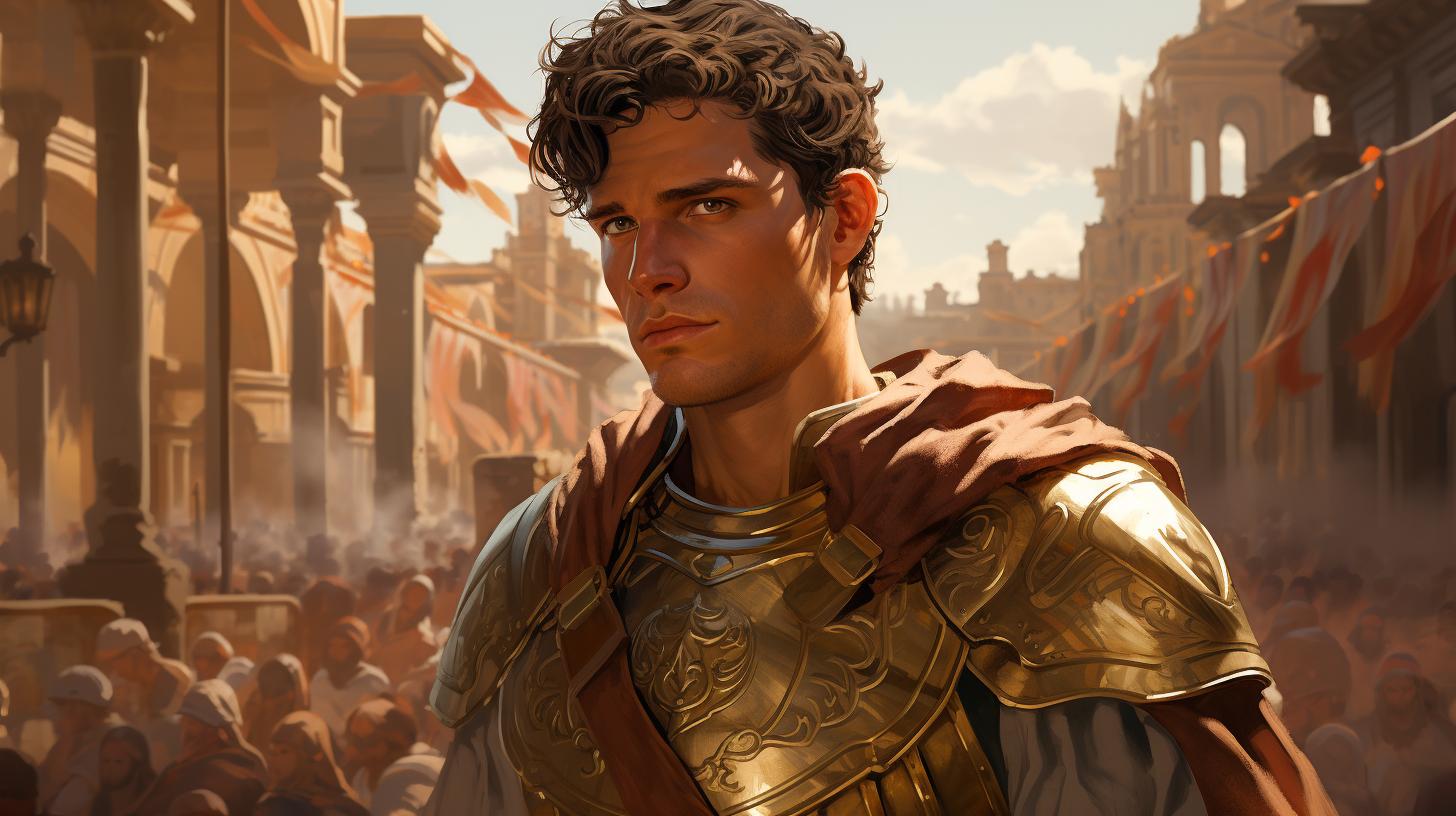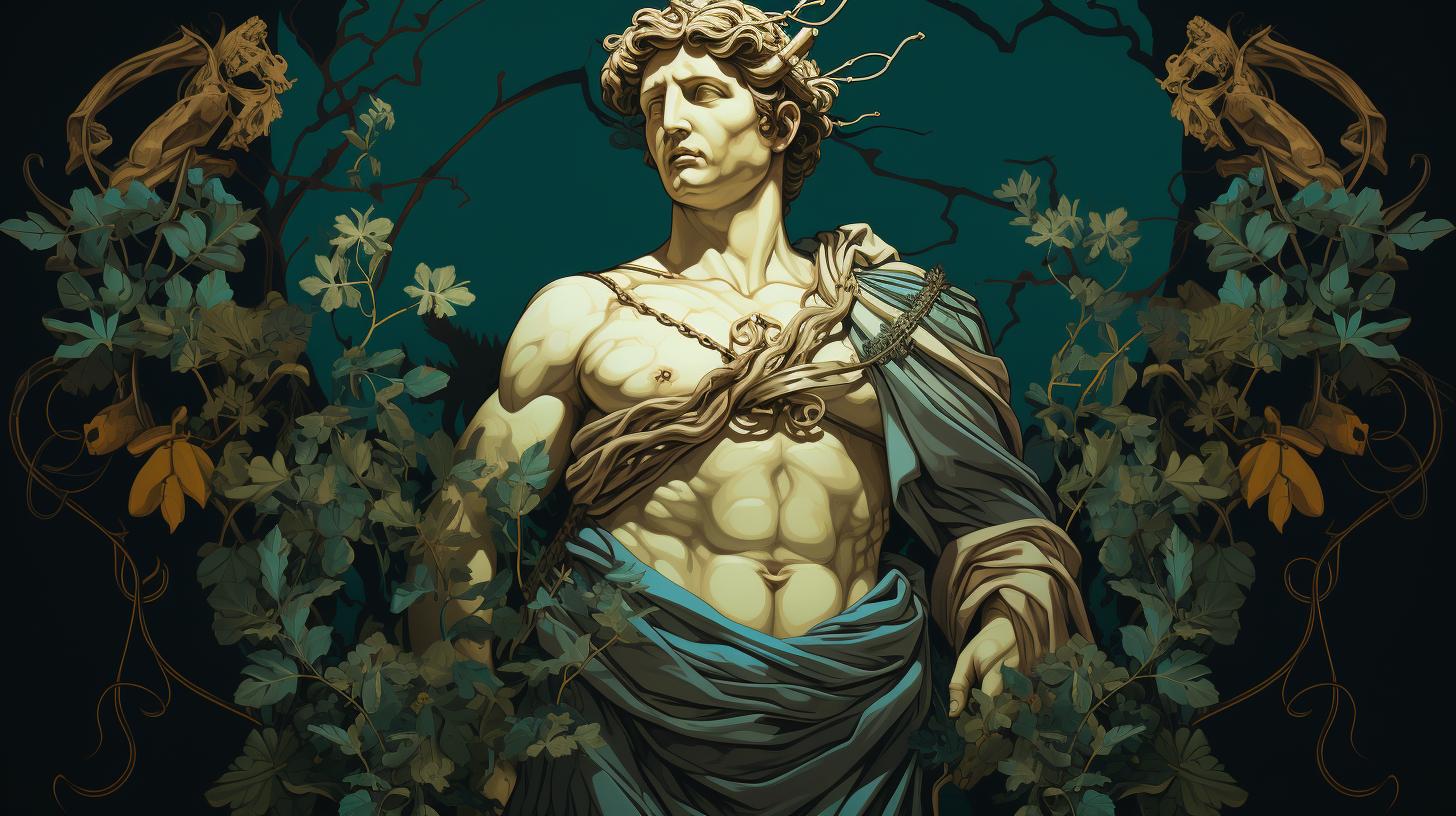Roman Goddess Discordia: Unveiling the Chaos and Conflict of the Greco-Roman Mythology

The Roman goddess Discordia, also known as Eris, is a captivating figure in Greco-Roman mythology. Personifying chaos, conflict, and rivalry, she played a significant role in various tales and events. From her involvement in starting the Trojan War with the infamous golden apple to her association with war and battles, Discordia’s influence spanned across the realms of legend and history.
In Roman mythology, she stands as the counterpart to Concordia, the goddess of harmony. Let us explore the intriguing myths and significance surrounding the legendary Roman goddess Discordia.
The Roman Goddess Discordia: Exploring the Mythology of Chaos and Conflict
The Roman goddess Discordia, also known as Eris, is a captivating figure in Greco-Roman mythology. She represents chaos, conflict, and rivalry, embodying the disruptive forces that can shatter harmony and ignite discord.
Understanding the origins and attributes of the goddess Eris provides insight into her significance in ancient mythology.
Origins and Attributes of the Goddess Eris
Eris is said to be the daughter of Nyx, the primordial goddess of the night. In some versions, she is associated with Ares, the god of war and her brother. Eris possesses a unique array of attributes that define her character.
As the embodiment of strife and discord, she fuels confrontations and sparks tension among gods and mortals alike. Her presence is an unsettling force, striving to upset the balance and harmony carefully maintained by other deities.
Eris‘s Role in the War of Troy
One of the most famous stories involving Eris is her instrumental role in the War of Troy, triggered by the famed golden apple incident. Eris, seeking to sow discord, threw a golden apple inscribed with the words “For the most beautiful” into a gathering of goddesses.
This act of provocation set off a fierce competition between Hera, Athena, and Aphrodite for the title of the fairest. The ensuing rivalry culminated in Paris of Troy choosing Aphrodite as the winner, thus setting a sequence of events that led to the Trojan War.
Eris‘s Association with War, Battles, and Chaos
Eris‘s affiliation with war, battles, and chaos is deeply rooted in her essence as the goddess of strife. She is known to incite conflict and foster disagreements wherever she goes. Eris stands as the driving force behind familial feuds, political disputes, and military clashes.
Her influence permeates the realm of mortal existence, as she contributes to the chaos and discord that shape history.
Discordia in Roman Mythology: A Counterpart to Concordia
The Relationship between Discordia and Concordia
In Roman mythology, Discordia, also known as Eris, stands as the antithesis to Concordia, the goddess of harmony. While Concordia represents order and unity, Discordia embodies chaos and conflict.
These two contrasting forces play a vital role in the balance of the Roman pantheon and the human realm. Discordia’s very existence challenges the idea of perfect harmony, reminding us that strife and discord are an inevitable part of life.
Discordia’s Friendship with Bellona, the Goddess of War
Discordia’s association with war goes beyond her symbolic connection to conflict. She is described as a friend and companion to Bellona, the Roman goddess of war. Together, they form a formidable duo, instilling chaos and strife on the battlefield.
While Bellona represents the organized chaos of warfare, Discordia amplifies the element of unpredictability, fueling the fires of battle and stirring the desires of bloodshed and victory.
Discordia’s Connection to Ate, the Greek Goddess of Mischief
In Greek mythology, Discordia shares a connection with Ate, the goddess of mischief. Ate embodies the concept of delusion and reckless impulse, leading mortals and immortals alike astray. Discordia’s association with Ate showcases her role as a catalyst for misfortune, exacerbating conflicts and driving individuals towards ill-advised actions.
Together, Discordia and Ate form a formidable force, orchestrating chaos and disruption wherever they go.
The Significance of the Golden Apple and Discordia’s Influence
Eris, also known as Discordia, played a pivotal role in the ancient Greek mythological tale of the Golden Apple. This apple, adorned with the inscription “For the most beautiful,” sparked a fierce competition among the goddesses Hera, Athena, and Aphrodite.
Unveiling the Story of the Golden Apple and the Goddesses’ Contest
In this legendary tale, Eris, embodying discord and rivalry, strategically threw the golden apple into the midst of the goddesses during a banquet. The apple became a symbol of beauty and power, destined to be claimed by the most deserving.
Hera, Athena, and Aphrodite became locked in a fierce contest, each pleading for the golden apple to be awarded to her. Prometheus, the Titan of foresight, refused to judge the competition, thereby appointing Paris of Troy as the ultimate decision-maker.
Paris, swayed by Aphrodite‘s promise of possessing the most beautiful woman in the world, chose her as the winner. This choice set in motion a chain of events that ultimately led to the outbreak of the Trojan War.
The Impact of Eris‘s Discord on Greek Mythology and History
Eris‘s act of tossing the golden apple was a catalyst for chaos and conflict, revealing the underlying tensions and rivalries amongst the gods and goddesses. The ensuing Trojan War became an enduring tale of heroism, tragedy, and the consequences of discord.
Moreover, Eris‘s association with war, battles, and chaos extends beyond the mythological realm. Her influence seeped into the historical narratives of ancient Greece, serving as a reminder of the profound impact of rivalry and disharmony on human affairs.
Discordia’s Role in Shaping the Outcome of the Trojan War
Eris‘s intervention in the fateful judgment of the golden apple directly influenced Paris’s decision and consequently determined the course of the Trojan War. This divine act of discord marked the beginning of a decade-long conflict and set the stage for countless heroic deeds and tragic consequences.
Discordia’s presence loomed over the battlefield, fueling the flames of destruction and instigating further strife amongst the gods and mortals. Her role in the Trojan War showcases her power to incite chaos and her ability to shape the destinies of nations.
As the war unfolded, Eris reveled in the chaos and conflict that ensued, cementing her status as the embodiment of discord in both mythological lore and historical accounts.
- Eris‘s act of throwing the golden apple ignited a rivalry among the goddesses
- The ensuing Trojan War became an enduring tale of heroism and tragedy
- Discordia’s influence extended beyond mythology, impacting ancient Greek history
- Her intervention shaped the outcome of the Trojan War and influenced the lives of gods and mortals
In conclusion, the story of the golden apple and Eris‘s role in it showcases the significance of the Roman goddess Discordia in Greek mythology and history, serving as a symbol of the discord and conflict that can shape the fate of individuals and nations.
…




















